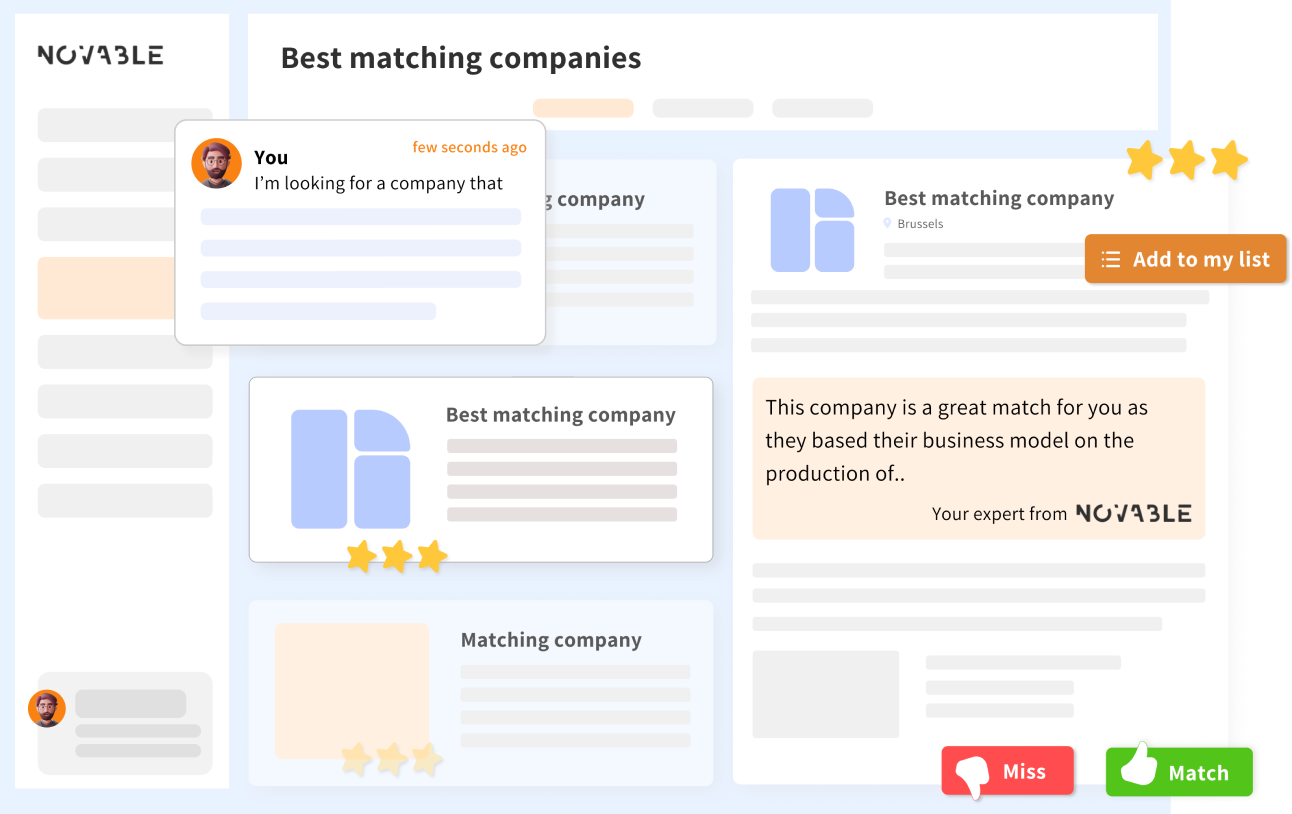Startup Scouting platform. Startup Scouting. Startup Scouting. Startup Scouting platform. Startup Scouting platform. Startup Scouting platform.
The landscape of innovation is undergoing transformation, as major corporations increasingly recognise the impact of startup scouting. Particularly in the digital and tech sectors, startups are disrupting entire industries from the ground up. Forward-thinking corporations perceive startups not as threats, but as potential collaborators who can contribute additional value to their company, consumers, and sectors.

As an innovation manager or employee in a corporate development environment, finding innovative ideas or startups for your company is always part of your agenda. Adding startup scouting activities to your global innovation strategy is a great way to innovate.
Startup scouting is part of the corporate venture engagement. More specifically, it is the process of identifying, evaluating, and selecting the best startups to work with. The purpose of it is to make sure that the right startups will enter your radar in due time.
Sometimes scouting is useful to know certain startups exist and other times, it is useful to watch how your market is evolving. Often, its purpose is also to establish a relationship with them. Purchase or sell a product or service, invest equity stake, or even acquire them. The possibilities are –almost– endless.
Novable advocates for the involvement of every corporate manager in the startup sphere. Why? Because startups play a pivotal role in instigating significant innovations that disrupt entire industries, spanning from hospitality to mobility and financial services. Emerging tech enterprises have achieved billion-dollar valuations, supplanting established technologies and prevailing business models. Fueled by digitalisation, entrepreneurial drive, and the ability to adapt rapidly, these fledgling companies prompt corporations across diverse sectors to recognise the potential precariousness of their business models and contemplate strategies for engaging with startups.
Collaborations between startups and large companies present substantial opportunities, fostering mutually beneficial outcomes when effectively harnessed. In a landscape where innovation, rather than sheer efficiency, dictates long-term success, partnering with startups enables corporations to explore and experiment with new technologies and service solutions at reduced costs and risks to their core operations. Startups also serve as wellsprings of fresh talent and innovative ideas, injecting vitality into corporate cultures.
Conversely, large firms offer startups a host of advantages, including market knowledge, extensive experience, economies of scale, established networks, potent brand influence, and other significant resources. For startups, collaborating with established businesses can be a crucial avenue to test their products for market fit, especially considering data from CB Insights indicating that many startups falter due to a lack of market demand for their products. Furthermore, procurement from corporate partners can facilitate the scaling up of startup operations and provide vital validation for future customer acquisition.
It is noteworthy that not just technology giants like Microsoft and Google, but also less tech-centric enterprises such as Coca-Cola and Unilever, have initiated programs to systematically identify, attract, and engage with emerging tech companies.
Open innovation has gained significance for numerous firms acknowledging the limitations of closed internal R&D. Evidence clearly indicates that embracing openness results in swiffer project execution, enhanced technical performance, and increased financial revenues. Notably, open innovation is increasingly implemented through formalised partnerships with startups. According to a KPMG survey conducted back in 2014, 88% of corporate respondents considered collaboration with startups essential for their innovation strategy. Research reveals a growing trend among established businesses, with an increasing number instituting structured programs ranging from corporate accelerators to venturing arms to leverage entrepreneurial potential.
Encouraging increased collaboration between corporations and startups could enhance the European innovation ecosystem. This would consequently empower technological advancements and the opportunities presented by digitalisation. Growing evidence suggests that deeper integration of digital technologies has the potential to enhance productivity. Strengthening collaboration would also contribute to a more robust European tech ecosystem, enabling startups to evolve into sustainable scaleups, and substantial and enduring enterprises. This underscores the importance of both the broader startup community and policymakers in supporting more efficient cooperation between corporates and startups.
If you are asking yourself these questions:
You are not alone! These are common challenges that many executives go through in their companies. Collaborating with startups has proven to be a valuable approach, offering a fresh and productive perspective on addressing these issues.
Commencing successful startup engagement initiatives necessitates posing the fundamental question: What are my goals in collaborating with startups, and what outcomes do I aim to attain?
Collaborating with startups fosters an entrepreneurial mindset among employees, exposing them to agile teams, lean methodologies, and innovative perspectives. Startups also play a role in cultivating awareness within corporations about upcoming trends and the possibilities presented by new technologies.
Startup collaboration not only refreshes internal corporate perspectives but also alters how corporate brands are perceived externally by customers, partners, and prospective employees.
Collaborating with startups to create innovative solutions and products is frequently a faster and less risky approach compared to internal development, as startups introduce new technologies, business models, and talent to the equation.
Startups can serve as a crucial avenue for extending business presence into new markets. Young enterprises also possess the requisite capabilities and adaptability to compete effectively in emerging sectors.
Novable leverages artificial intelligence and human expertise to deliver full-scope professional solutions. It acts as an extension of your team. The benefits are tangible. While technology delivers light-speed results on a much broader reach, the consultants’ expertise complements it with innovation and startup literacy. It leaves you the final cut. Think of it as a Pareto rule: 80% of tedious searching tasks are delegated to the machine in a matter of seconds and, at the end of the day, you get better and faster results. Here are some examples of companies using AI to offer efficient solutions to our planet’s environmental issues as well as companies using AI to lead the industry 4.0 race.
Are you already scouting for startups in your company? Don’t know where to start? Reach out to us and share your thoughts on LinkedIn!